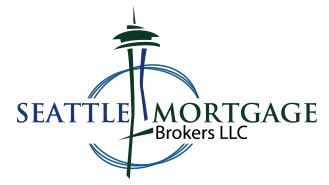We're In A Buyers Market Lower mortgage rates haven’t caused an uptick in demand just…
Finances: Debt and Equity Investments
What are debt and equity investments?
Are their markets that different? Don’t know? No worries, we got you covered! This section of finance this month will be discussing the differences between the markets for debt and equity, along with quick info on their investment opportunities.
Their markets:
The basic differences between the debt and equity markets include the type of financial interest they represent, the way in which they generate profits for investors, how they are traded and their respective risk levels. Both debt securities and equity investments have the potential to deliver significant returns. Overall, equity investments represent an ownership interest in a company, while bonds only represent a financial interest.
Debt investments:
Investments in debt securities typically involve less risk than equity investments. However, they also typically offer a correspondingly lower potential return on investment. These investments fluctuate less than the stock market between highs and lows, thus making them less volatile than common stocks.
Debt investments are not centrally traded but are traded over the counter, or OTC. Bonds, also referred to as fixed-income, are the leading form of debt investments, although mortgages are also included in this asset category. Mortgage investments are secured by the underlying real estate as collateral.
Historical data show that both bond and mortgage markets have been exposed to far fewer significant changes in price than stocks. Also, in the event that a company is liquidated, bondholders are the first to be paid.
Equity investments:
Equity investments involve the buying and selling of stock and are conducted on trading exchanges such as the New York Stock Exchange (NYSE) or Nasdaq. No matter the kind, all stock markets have the potential to be volatile and experience dramatic fluctuations in share values. These substantial price swings can sometimes have very little to do with the stability and good name of whatever corporation’s value they represent; instead, they are sometimes caused by social, political, governmental or general economic issues occurring within the origin country of the corporation.
Equity investments can essentially be viewed as taking on a greater risk of loss for the chance to earn a potentially higher return. To be successful, equity investing requires a substantially higher level of research and monitoring. There is generally a much higher turnover rate in the holdings of equity portfolios than there is in bond portfolios.
*This article does not represent legal interpretation or advice. This is not a commitment to make a loan. Loans are subject to borrower qualifications, including income, property evaluation, sufficient equity in the home to meet LTV requirements, and final credit approval. Approvals are subject to underwriting guidelines, interest rates, and program guidelines, and are subject to change without notice based on applicant’s eligibility and market conditions. Refinancing an existing loan may result in total finance charges being higher over life of loan. Reduction in payments may reflect longer loan term. Terms of the loan may be subject to payment of points and fees by the applicant. Seattle Mortgage Brokers, LLC NMLS: LO# 305371 MB# 761615

